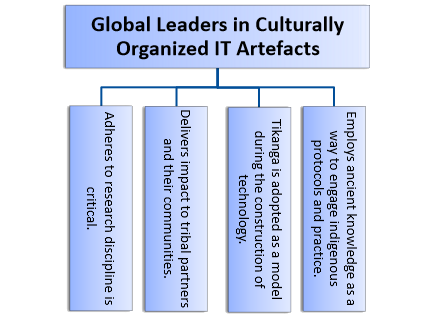Aroha ki te tangata
| Respect for people within research is about allowing the people involved in research to define its context. It is also about maintaining this respect when dealing with research data. |
He kanohi kitea
| Being a face that is seen and known to those who are participating in research. Researchers should be engaged with and familiar to the community so that trust and communication is developed and maintained. |
Titiro, whakarongo...kōrero
| Look, listen, and then later, speak. Researchers take time to understand people's day-to-day realities, priorities, and aspirations. In this way the questions asked and solutions proposed by a researcher are relevant. |
Manaaki ki te tangata
| Looking after people is about sharing, hosting, and being generous with time, expertise, relationships, etc. |
Kia tupato
| Be cautious. The researcher is politically astute and culturally safe. Staying safe may mean collaborating with elders and others who can guide research processes, as well as the researchers themselves within communities. |
Kaua e takahia te mana o te tangata
| Uphold the mana of the people. People are often the experts on their own lives, including their challenges, needs, and aspirations. Look for ways to collaborate with the people on research reports as well as research agendas. |
Kia mahaki
|
Be humble. Researchers should find ways of sharing their knowledge while remaining humble. The sharing of expertise between researchers and participants leads to shared understanding that will make research more trustworthy.
|

